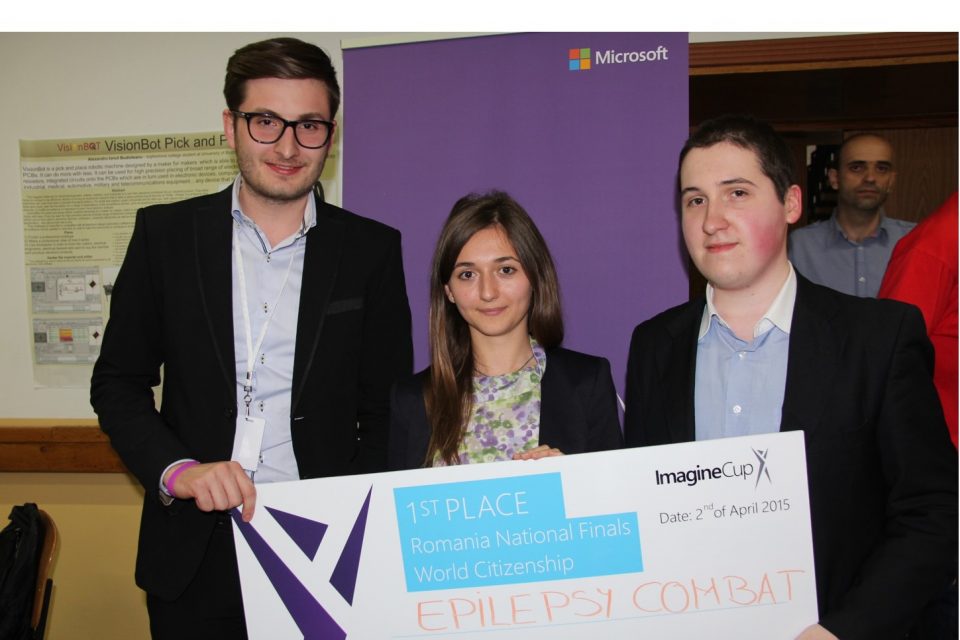As the world’s fourth most common neurological condition, epilepsy impacts a staggering 65 million people worldwide. Affecting the brain and causing repeated seizures, for 70% of sufferers the causes are unknown. Unfortunately there is no one single test that can identify epilepsy, and there are a number of conditions that cause similar symptoms, making diagnosis difficult. In most cases seizures end on their own, however, for an unfortunate few they can result in medical complications, including life threatening emergencies.
Witnessing an epileptic seizure can be a shocking and heart-breaking experience. While conducting research at Eindhoven University in the Netherlands, our Imagine Cup finalists from Romania gained a deeper understanding of exactly what happens when seizures occur. However, they were able to take this upsetting experience and channel it into a positive outcome – a commitment to finding a way to detect epileptic seizures and help to prevent the most serious repercussions.
The team, Epilepsy Combat, boldly set about tackling the challenge of solving effective epilepsy diagnosis. The solution, Epilepsy Seizure Detection (EpSyDet), deploys a wristband to monitor the wearer’s physical condition and trigger a response in the event of a seizure. Using the kind of sensors commonly found in fitness trackers to measure heart rate, it syncs with the user’s smartphone and can send alerts, including GPS coordinates, to chosen phone numbers if a seizure does strike.
By conducting ongoing analysis of the data provided by EpSyDet, the team intends to progressively improve its algorithm so that it will become more effective at detecting, and even pre-empting serious seizures. This in turn has the promise of helping medical professionals to prescribe more effective treatments for patients. What’s more, the team is examining how the technology may be developed to address other life-threatening conditions such as heart attacks and diabetes.
Getting to this stage did not come easily – the world of start-ups is incredibly competitive and Epilepsy Combat chose a particularly tricky medical issue to address. But the team is fully invested in this idea, not afraid of hard work, and passionate about making a difference in the world. That’s why we’re so excited to see what they will achieve next.
You can read more about EpSyDet here.




